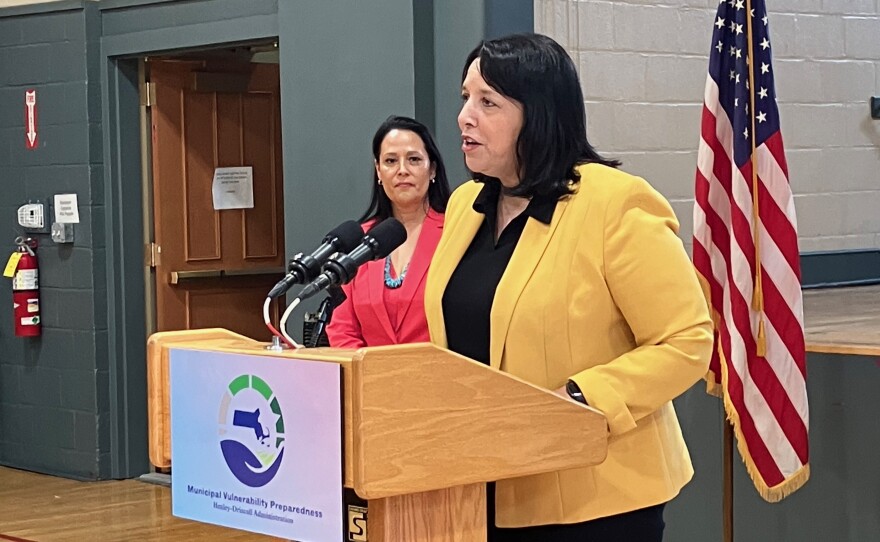Massachusetts has awarded more than $31.5 million in grants to dozens of cities and towns and to two Native tribes to build climate resilience at the local level.
The funds are part of the Municipal Vulnerability Preparedness Program, which provides planning grants to assess and mitigate potential climate hazards such as flooding and extreme heat—along with funds to implement these plans. It also helps cities and towns focus on populations that are most affected by the impacts of climate change.
Belchertown, Chesterfield, Chicopee, Deerfield, Goshen, Montague, Northampton and South Hadley, along with the Hassanamisco Nipmuc Band, received planning grants of $95,000 each.
More than a dozen other cities and towns, as well as the Stockbridge-Munsee Band of Mohicans received "action" grants to implement plans. The Stockbridge-Munsee tribe will use the grant to purchase land that was part of their homelands.
Conway received $279,000 to address flooding. Leyden and Bernardston got $179,200 to assess and mitigate wildfires. West Springfield received $59,000 to create a tree nursery and to plant trees. Closer to Boston, Chelsea received a grant for $315,690 to mitigate heat in elementary schools.
Speaking at the Stockbridge Town Hall on Wednesday, Lt. Gov. Kim Driscoll said the grants will protect against future challenges, such as the flooding of farm land.
"Frankly, communities know how to do this best. We're putting dollars in local hands with locals who know how to solve challenges on the ground that they're experiencing. The Stockbridge-Munsee Band knows how to do this. Our cities and towns know how to do this," Driscoll said. "Local knowledge is key."
The Stockbridge-Munsee Band of Mohican Indians received $2,257,990 to purchase 351 acres of their homelands in Stockbridge. This is the largest parcel of their homelands that the tribe has re-acquired.
Driscoll said traditional ecological knowledge will help the state adapt to a changing climate.
As she thanked state officials, Stockbridge-Munsee President Shannon Holsey said it was an emotional and joyful day for her community and that the grant marks a shift in how society invests in tribal nations.
The parcel, on the north slope of Monument Mountain, includes a large floodplain.
"Indigenous people believe that the wetlands are the kidneys of of the universe," Holsey said after the grant announcement. "We look to ways to make sure we keep her healthy and we make sure that we leave it for future generations to revere, to have ceremony and to make sure that it remains the sacred place that we always called home."
Holsey said one of the first things the tribe will do is assess the environmental conditions of the land.
"There will be a long process and deliberation of how we move forward, how we steward," she said.
When asked whether the grant includes any restrictions on development of the parcel, a spokesperson for the Executive Office of Energy and Environmental Affairs said via email "the tribe applied with the intention of conserving the land. We will be working with them on a conservation plan as a part of this grant."
The tribe lived in the Housatonic Valley centuries ago, until the 1780s, when they were forced to relocate after English settlers took their land.















